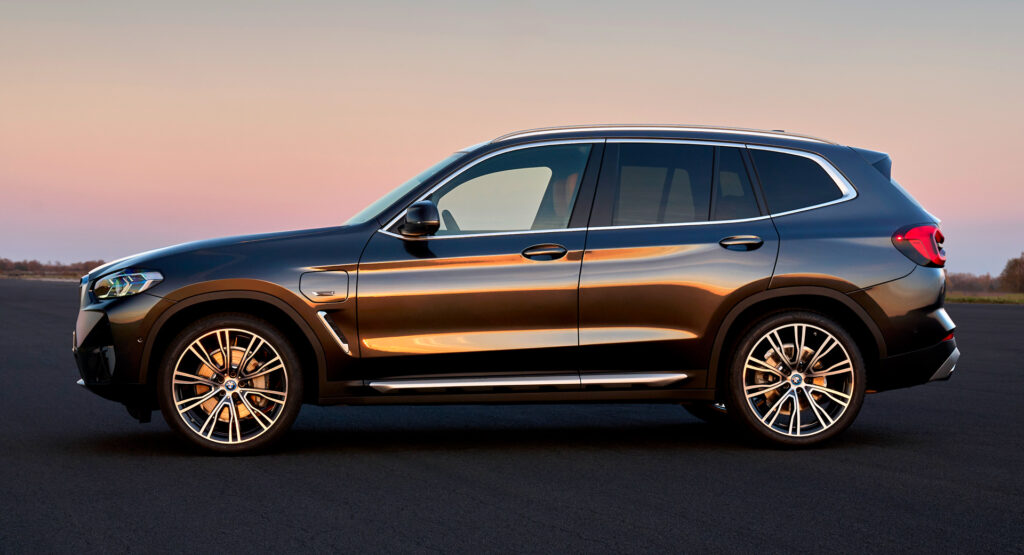
- Car loan interest could become tax deductible under new GOP-backed legislation.
- Only new vehicles assembled in the U.S. would qualify for the potential deduction.
- Used cars, ATVs, trailers, and campers are excluded from this tax plan entirely.
Buying a car might soon come with more than just a new ride and another line on your monthly budget. If a new tax proposal currently under consideration in Washington moves forward, some car buyers could see a surprising bonus in the form of a potential break on their federal income taxes.
var adpushup = window.adpushup = window.adpushup || {que:[]};
adpushup.que.push(function() {
if (adpushup.config.platform !== “DESKTOP”){
adpushup.triggerAd(“0f7e3106-c4d6-4db4-8135-c508879a76f8”);
} else {
adpushup.triggerAd(“82503191-e1d1-435a-874f-9c78a2a54a2f”);
}
});
Read: 80% Of Car Tariffs Could Be Passed Directly To You
A provision in the Senate GOP’s latest tax plan, which could reach President Trump’s desk as soon as July 4, would allow certain new car buyers to deduct up to $10,000 in auto loan interest from their taxable income. The deduction would be available from 2025 through 2028, giving eligible buyers a multi-year incentive, at least on paper. But don’t assume everyone with a car loan is in line for a break.
Plenty of Strings Attached
For starters, used cars don’t count. If your financing went toward a previously owned vehicle, you’re out of luck. And even among new car buyers, not all vehicles will qualify.
According to a report from CNBC, the eligible vehicles must be new and built in the United States. That includes cars, SUVs, vans, minivans, pickup trucks, and motorcycles, but excludes trailers, campers, and ATVs. Those were part of the House version of the bill but didn’t make the cut in the Senate’s draft.
The qualifiers don’t stop there. Timing matters too. Only car loans secured after December 31, 2024, would be eligible, and it’s only available for the first loan on a given vehicle.

Savings, But Only For Some
Given that it’s typically higher-income earners who opt for new vehicles rather than used ones, the bill will benefit them more.
var adpushup = window.adpushup = window.adpushup || {que:[]};
adpushup.que.push(function() {
if (adpushup.config.platform !== “DESKTOP”){
adpushup.triggerAd(“bb7964e9-07de-4b06-a83e-ead35079d53c”);
} else {
adpushup.triggerAd(“9b1169d9-7a89-4971-a77f-1397f7588751”);
}
});
“The more you earn, the higher the tax rate you pay, meaning the more benefit you get from this thing,” Institute on Taxation and Economic Policy senior fellow Matt Gardner said.
However, the deduction gradually phases out. For every $1,000 in income above $100,000 for individuals or $200,000 for joint filers, the value of the deduction drops by $200. So while it starts out generous, that generosity quickly fades as income rises.
Gardner also pointed out a major caveat. The expected price increases from President Trump’s 25 percent tariffs on imported vehicles could undercut the value of the tax break. “That will completely eat up the value of this deduction for a lot of people,” he said.
var adpushup = window.adpushup = window.adpushup || {que:[]};
adpushup.que.push(function() {
if (adpushup.config.platform !== “DESKTOP”){
adpushup.triggerAd(“bb7964e9-07de-4b06-a83e-ead35079d53c”);
} else {
adpushup.triggerAd(“9b1169d9-7a89-4971-a77f-1397f7588751”);
}
});


